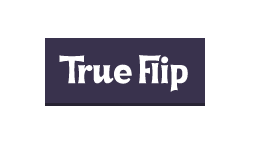Klarna, the Swedish fintech giant, is methodically charting its course toward a highly anticipated IPO, signaling a significant move in the fintech sphere. Amidst strategic restructurings and market expansions, Klarna’s poised approach to becoming a publicly-traded entity encapsulates the momentum seen across the financial technology industry.
Klarna’s latest corporate maneuver involves transitioning to a new holding company based in the United Kingdom. This move isn’t just about geographical preference; it’s a strategic leap forward. By establishing a U.K. holding company, Klarna aligns itself with a globally recognized financial marketplace, revered for its robust legal and regulatory frameworks – aspects critically evaluated by its international investor base.
This restructuring underlines Klarna’s unswerving commitment to maintaining its financial roots and operational integrity. With the new holding entity, Klarna ensures it remains under the vigilant eye of the Swedish Financial Supervisory Authority, upholding its esteemed Swedish banking license. The crux of the matter is that while the corporate hierarchy realigns, the beating heart of operations in Sweden continues unabated.
Klarna’s CEO and co-founder, Sebastian Siemiatkowski, recently took the dialogue a step further. In collaboration with the board and with the backing of heavyweight venture firms like Sequoia and Heartland, Siemiatkowski reached out to the company’s top shareholders. The agenda? To seek consensus on the creation of the new legal structure, which is integral to the company’s journey toward the public domain.
The contemplation over the precise timing and locale for the IPO is still underway, with no firm commitments yet made public. Nevertheless, Klarna’s selection of the U.K. as the base for its holding company is a nod to the region’s esteemed position in the global financial ecosystem and a clear signal to its investors that it’s gearing up for the big leagues.
This strategic evolution follows a triumphant quarter for Klarna. By posting a return to profitability and a 30% uptick in revenue to an impressive $550 million, the company has painted a picture of robust financial health and savvy business acumen.
Klarna’s reach is substantial, boasting a global customer base of 150 million, partnerships with half a million merchants, and a dedicated workforce of about 5,000. While its valuation experienced a recalibration – from a soaring $45.6 billion to a more grounded $6.7 billion – the company remains a formidable player in the fintech arena.
The U.S. market now emerges as Klarna’s revenue frontrunner, outpacing Germany – a telling indicator of the company’s strategic market penetration and product resonance. Klarna’s offerings transcend the boundaries of their initial ‘buy now, pay later’ model, expanding into a comprehensive shopping destination. This transformation into an all-encompassing consumer app features an array of services from payment solutions to money management tools, showcasing the company’s adaptability and foresight.
“We’ve outgrown the BNPL label,” Siemiatkowski emphasizes. “What started as a convenient payment method has flourished into a multifaceted platform that’s growing exponentially faster than our original offering.” Klarna’s evolution is emblematic of its mission to stay ahead of consumer needs and market trends, even if it takes time for public perception to catch up with the reality of their expansive services.
As the fintech landscape buzzes with IPO chatter, Klarna’s methodical approach stands out. It’s not merely setting the stage for its own debut on the stock exchange; it’s carving out a path for the entire fintech sector to follow. With strategic restructuring, steadfast focus on regulatory compliance, and an eye towards broadening its product suite, Klarna isn’t just inching toward an IPO – it’s striding confidently towards a future where it continues to redefine the essence of financial technology services.
As Klarna and its peers in the fintech ecosystem edge closer to the public markets, they collectively underscore the transformative potential of this dynamic industry. Investors and consumers alike watch keenly, anticipating the next chapter in Klarna’s compelling narrative – a chapter set to unfold on the global stage of public markets.










